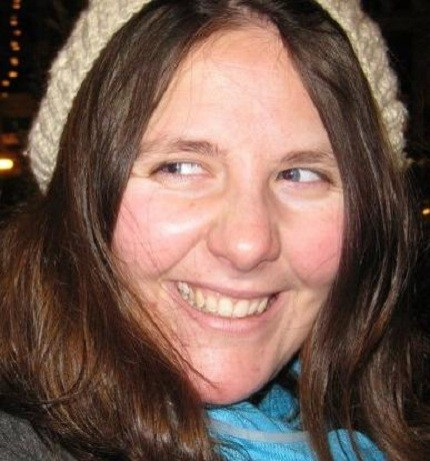How Reading Disturbing YA Books Made Me a Better Person

CHICAGO -- The lit and library corner of the Internet was all aflutter last week over a Wall Street Journal article by Meghan Cox Gurdon on the depravity of young adult (YA) literature today, and Sherman Alexie's response to that article. Gurdon tries to preempt those who would contradict her by saying they're too interested in free speech and not interested enough in the well-being of teenagers who read books about truly horrible things like rape, abduction, drug use, and child abuse. She wants to protect young readers from being exposed to the horrors of the world, and I can understand a parent's impulse to shelter children from bad things.
But as Alexie points out in his response, it's too late for too many young readers to be sheltered from those same horrors, because they're experiencing them themselves. He lists several examples of teens who connected with characters in his books, who saw themselves and their dark secrets in the lives of his characters, and who found hope and redemption in the pages of those books. The people who wring their hands over the lost innocence of teens who read about tough realities are the same people who can't or won't acknowledge how rampant those problems are in the real world, and don't help the teenagers who are living those tough realities every day. As Alexie says, they are simply trying to protect their privileged notions of what literature is and should be. They are trying to protect privileged children.
I was one of those privileged children, and I will say that some of the books I read as an adolescent were utterly surprising and terrifying to me. Books about war, and child abuse, and the sudden and inexplicable death of a friend scared and confused me. I'd never had to think about these things before, because I was fortunate enough to grow up in a family and an environment that had succeeded in protecting me from experiencing or even knowing about them. I had little in my life to compare to the lives of the characters in these books, except for that reliable adolescent feeling of isolation and fretful yearning that the best YA books capture so well.
The power of books, of course, is that we don't have to be anything like the characters to relate to them, or to care about what happens to them. Books are the purest gateway to new perspectives, and an ideal way to nurture empathy. The hope is that when those of us who were lucky enough to escape trauma in our young years encounter it later in life (and we all will, since that's the nature of things), we will have a stronger sense of commonality gleaned from the pages of those disturbing, almost always redemptive novels of our youth.
I am positive that I am a better person for having read a wide range of books when I was growing up -- from L.M. Montgomery to Cynthia Voigt, from Chris Crutcher to Lloyd Alexander. I wouldn't want to read only books about depressing topics, but nor would I want to read only books about fairytale lives and happy endings. I found Dicey and Alanna, and Will Beech and Peter, and any number of characters and themes in various books, until I had a much more complete picture of the world than my own happy upbringing had given me (and let's be clear, I am thrilled my childhood was so happy, and I don't think my parents should have sat me down to tell me about bad things in the world in some big speech; reading them on my own allowed me to discover them at my own pace and ask questions as I needed). Reading was sometimes overwhelming in the new worlds it opened up, but I was never sorry that I'd learned more or considered a new point of view or felt closer to my fellow teens. It only made me determined to help end the bad things I could, and to endure those that I couldn't.
Books written in blood, as Alexie puts it, are necessary for all adolescents; they're lifesavers for those already bearing the scars of experience and for those whose wounds will come later, for those needing a guide out of a dark tunnel and for those who walk with them.
Lisa Findley is a writer and editor living in Chicago. She blogs about travel, literature, and politics at Stowaway (lisafindley.wordpress.com), where this piece was originally posted. Next year readers can follow her on her two-year trip around the world.
© Copyright IBTimes 2024. All rights reserved.





















